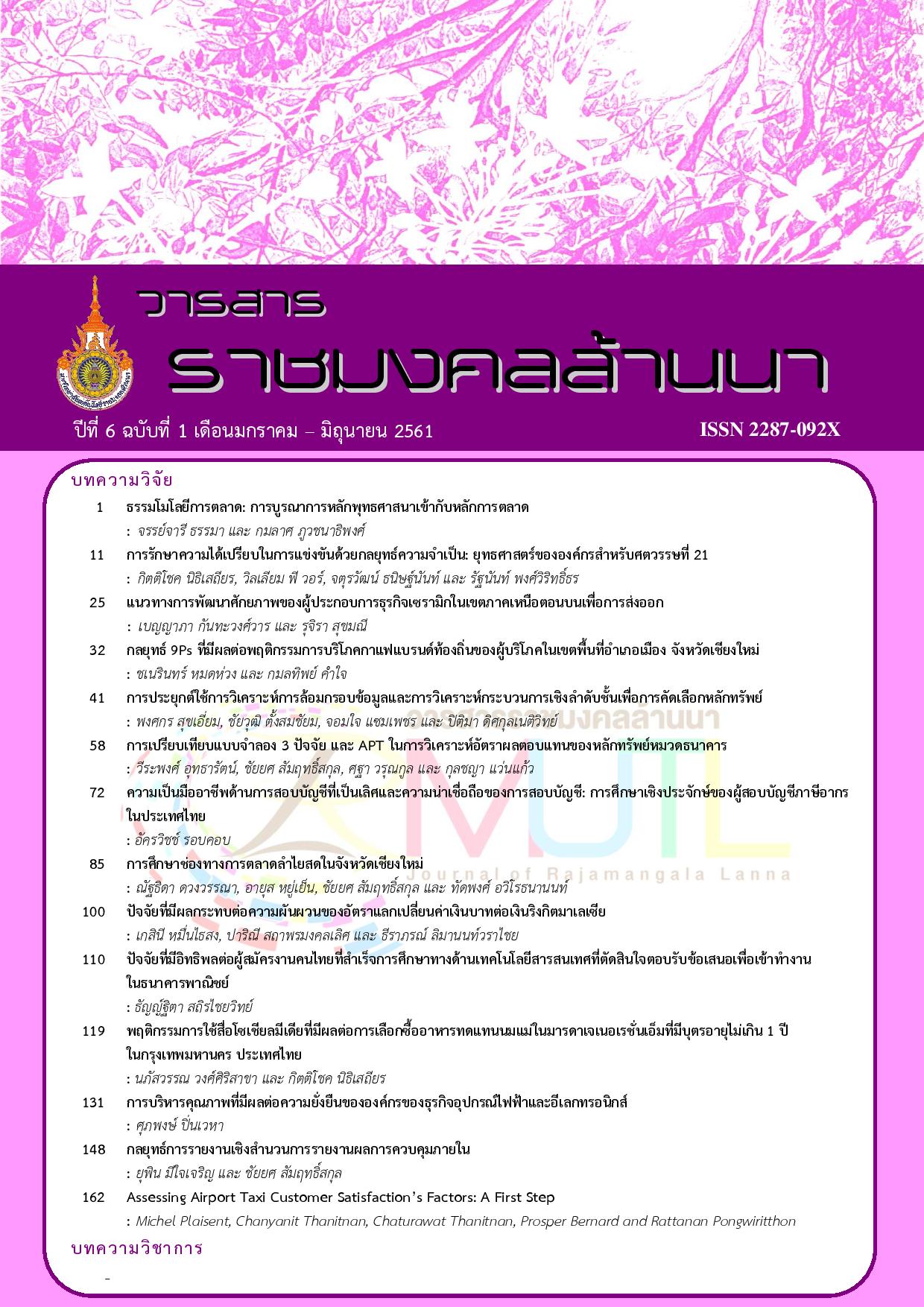Factors Affecting the Fluctuation of the Thai Baht/Malaysian Ringgit Exchange Rate
Main Article Content
Abstract
This article aimed to study the factors affecting the fluctuation of the Thai Baht/Malaysian Ringgit exchange rate. The factors were Thailand-Malaysia trade equilibrium, inflation, interest rate and foreign exchange reserve. The multiply regression was used to study the relationship between dependent variables and independent variables. Data used in this study is the time series secondary data from January 2000 to December 2016 on a monthly basis, totaling of 180 months. The study found that the fluctuation of the Baht/Ringgit exchange rate was significantly affected by inflation and foreign exchange reserve at a significant level of .05. These two factors had positive relation to the Baht/Ringgit exchange rate. Consequently, the Thai government should decide its inflation and foreign exchange reserve as it can significantly affected the Baht/Ringgit exchange. The regression model had 59% predictive power.
Article Details
บทความวิจัยนี้เป็นของลิขสิทธิ์

